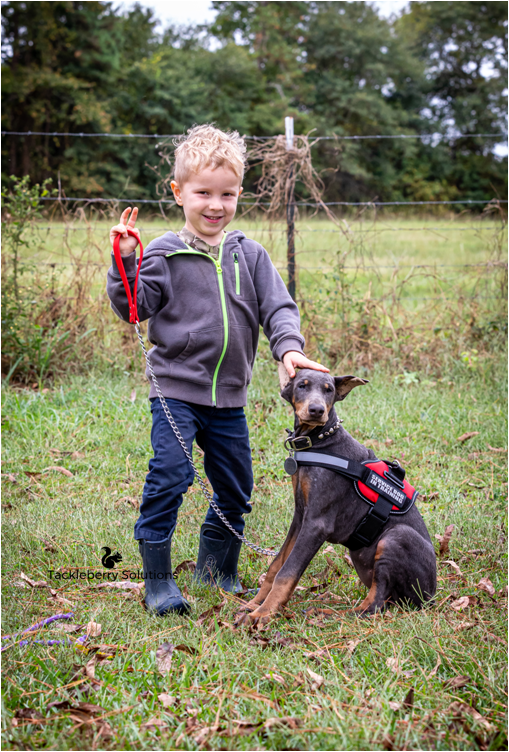It is quite the opposite, in fact. The sooner the puppy shows an interest to and responds to obedience training, the better. That being said, 12 weeks is when you really need to start getting serious about its manners and how well your canine listens to you.
Training must have's
While this course is not about how to teach a dog obedience and manners, I did want to explain to you how to teach a dog to respect younger children. This is important because as a protection dog, you want them to respect the child as much as it respects you.
To do this, you must establish that the child is also at the top of the totem pole. Since younger children are not really capable of doing this themselves, you will have to intervene on their behalf.
However, it really isn't as hard to do as it sounds. It only requires patience, time and persistence.
Note: Refer to the resource section below to get a checklist for required obedience training and manners.

Teaching Respect By Setting Boundaries
When the puppy is interacting with you or with your child, you CANNOT let it jump up on you. Although it may seem cute, it is not something you want to cultivate or encourage (especially if your puppy is going to grow into a very large dog.)
Invite your puppy to play with you, but scold it when it tries to jump. The best way to do that is to imitate what an Alpha would do when boundaries have been crossed; which is to growl or snap. Clapping or saying "No!" loudly works well so long as it is clear the puppy is getting the picture. Use whatever scolding method works best so long as you don't forget that we're trying to cultivate a confident attitude, not a fearful one. Be firm! But do not hurt the dog to prove a point.
When it comes to your children, you will have to scold the puppy for them. Stay next to the child and repeat yourself as often as it takes for the puppy to get the picture. If this is done correctly, the puppy will start to see your child as Alphas. Which means that the child is no longer a fellow puppy but higher up on the totem pole. The puppy will still have the desire to play, but they will be more polite about it.
Keep in mind that this advice is very summarized. For more detailed information on how to teach this concept, I highly suggest you do more research on the matter.
Warning: Do not start bite training until the puppy has mastered all of the obedience and manners listed on the checklist. Be sure that they obey even while distracted or severely tempted to do otherwise.
